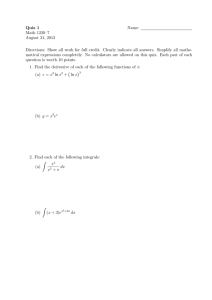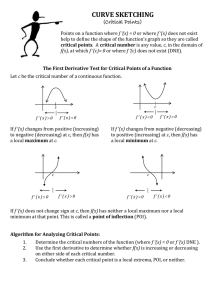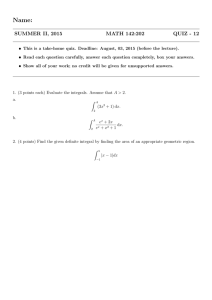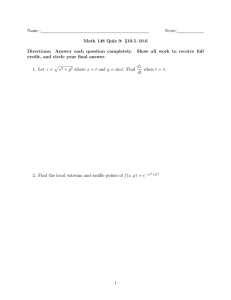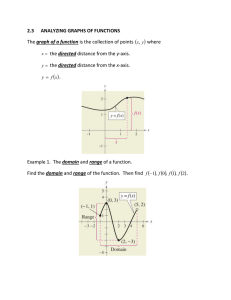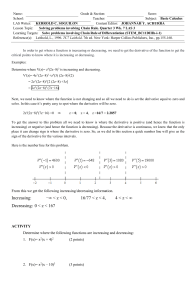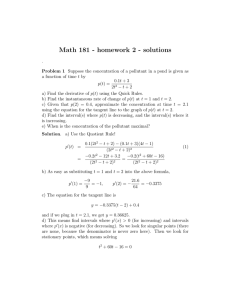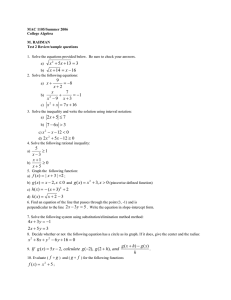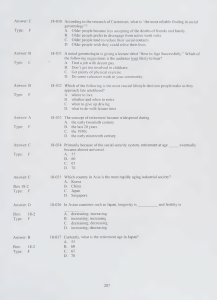Quiz 1 Math 1220–7 August 31, 2012
advertisement
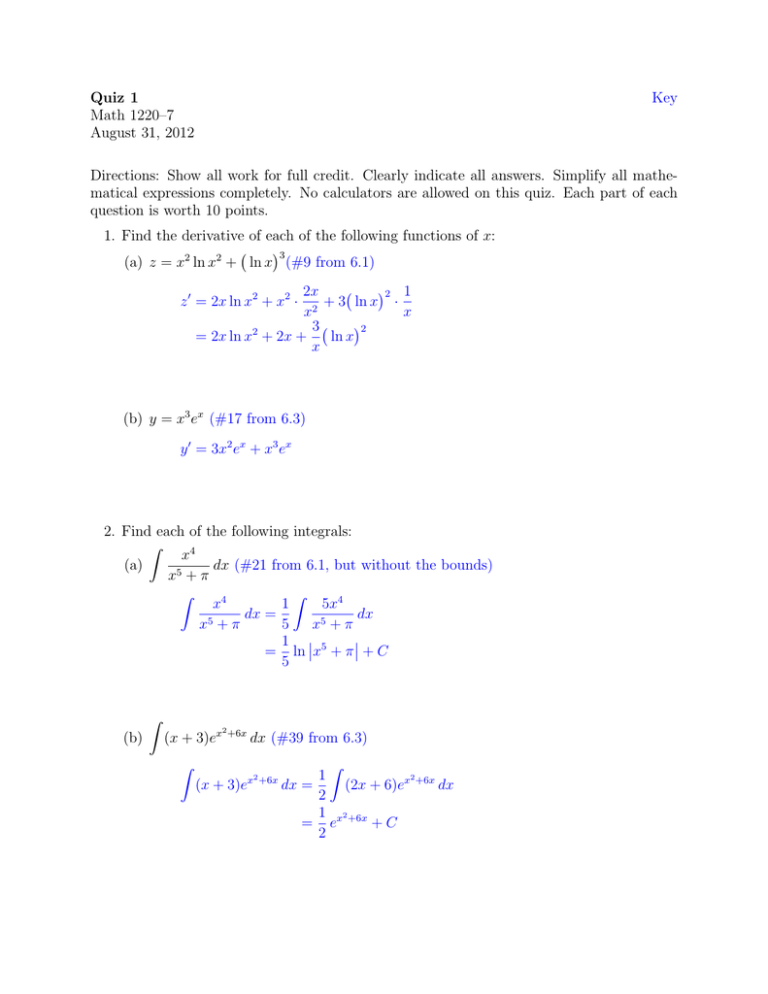
Quiz 1 Math 1220–7 August 31, 2012 Key Directions: Show all work for full credit. Clearly indicate all answers. Simplify all mathematical expressions completely. No calculators are allowed on this quiz. Each part of each question is worth 10 points. 1. Find the derivative of each of the following functions of x: 3 (a) z = x2 ln x2 + ln x (#9 from 6.1) 2 1 2x + 3 ln x · x2 x 2 3 2 ln x = 2x ln x + 2x + x z 0 = 2x ln x2 + x2 · (b) y = x3 ex (#17 from 6.3) y 0 = 3x2 ex + x3 ex 2. Find each of the following integrals: Z x4 (a) dx (#21 from 6.1, but without the bounds) x5 + π Z Z 1 x4 5x4 dx = dx x5 + π 5 x5 + π 1 = ln x5 + π + C 5 Z (b) (x + 3)ex Z 2 +6x dx (#39 from 6.3) x2 +6x (x + 3)e Z 1 2 dx = (2x + 6)ex +6x dx 2 1 x2 +6x = e +C 2 3. Let f (x) = (x − 1)3 . Find a formula for f −1 (x) and then verify that f (f −1 (x)) = x. (#23 from 6.2) Let y = (x − 1)3 . Solving for x, we get √ 3 y =x−1 √ x = 3 y + 1, √ so f −1 (x) = 3 x + 1. To verify that f (f −1 (x)) = x, we will use the functions: 3 √ √ √ 3 f (f −1 (x)) = f 3 x + 1 = 3 x + 1 − 1 = 3 x = x 4. Let f (x) = ln(x2 + 1). Identify the domain of the function, as well as where it is increasing and decreasing. (a shorter version of #29 from 6.3) The domain of f is all real numbers (since we can use any value of x in the function). To find where the function is increasing and decreasing, we need the derivative: f 0 (x) = 2x +1 x2 This is positive when x > 0 and negative when x < 0, so the function is increasing on (0, ∞) and decreasing on (−∞, 0).
